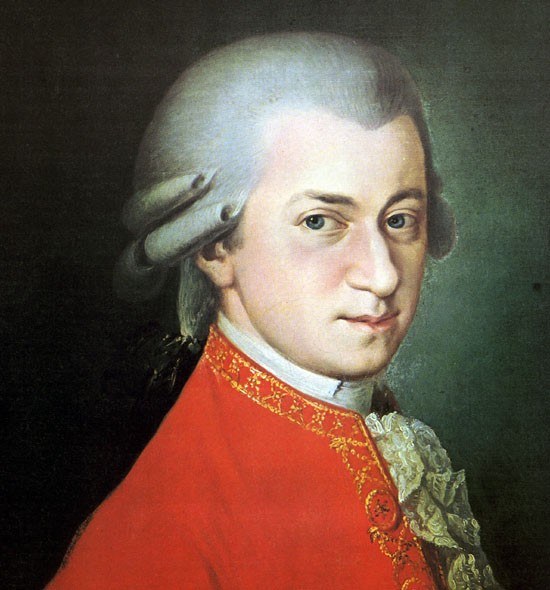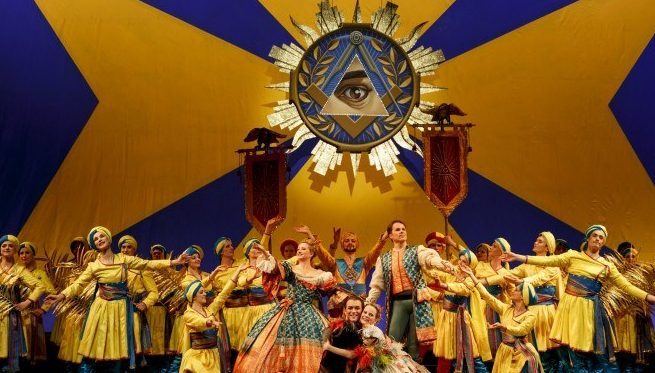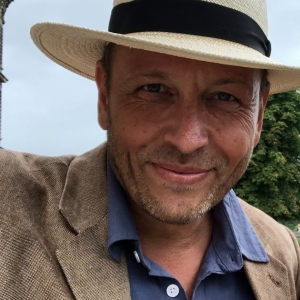
Early life and career
Wolfgang Amadeus Mozart is widely regarded as one of the greatest composers in the history of Western music. Mozart was born in Salzburg, Austria on 27 January 1756. His father, Leopold, discovered the great talent that his son possessed, encouraged his son and followed Mozart's education in every way possible. Amazingly, he had already started composing music at the age of five and from then on produced some of the best pieces the world has ever heard. He spent his youth performing for the nobility throughout Europe and writing sonatas, concertos and operas.
Uniquely, Mozart wrote all music himself and excelled in all musical genres of his time, which was unlike any other musical composer in history. Some of his notable works include Le nozze di Figaro, Don Giovanni, Die Zauberflöte, Cosi fan Tutte and the Jupiter Symphony. Much of Mozart's work came from the values and beliefs of Freemasonry. He wrote many pieces of music for Lodges and various Masonic rituals throughout his career. According to Robert Levin of Harvard University, an expert on the famous composer, the last piece he completed before his death was K.623, 'Kleine Freimaurer-Kantate'."
Joining Freemasonry
Mozart was initiated into Austrian freemasonry on 14 December 1784 in the lodge 'Zu Wohltätigkeit' in Vienna. He was 28 years old at the time. He soon became a Master Mason and was a loyal and committed Brother until his death in 1791. Experts state that he was listed as 3rd Degree Freemason in a membership list and that he was a very regular visitor to his Lodge.
It is not exactly known how Mozart first became acquainted with Freemasonry. However, he came from a Masonic family. Both his father-in-law and brother-in-law were freemasons. As Levin notes, Mozart was attracted to Masonic lodges "because of their fascination with human dignity and freedom."
Mozart's devotion to Freemasonry is evident from his subscription during the Catholic Church's ban on Freemasonry.
Pope Clement XII had banned membership in 1738, but seeing no conflict between the two, Mozart defied the Church's orders and joined Freemasonry. He remained a devout Catholic and composed more than 60 pieces of sacred music for the Roman Catholic Church, some of which were the most famous liturgical scores in Western history.
Freemasonry had a powerful effect on Mozart's life, which can be seen in his various musical works. He wrote at least eight compositions for the Freemasons, including his Freemason's Funeral Music. Experts also discover influences of Freemasonry in his famous opera 'The Magic Flute'. For those who have studied his life and work, it is clear that Mozart consciously used Masonic themes and symbolism in his music.
While Mozart established a legacy as one of the greatest composers of all time, he did not enjoy much glamour towards the end of his life. He spent his last years in debt and was sometimes depressed. He died tragically at the age of 35 and was buried in an unmarked grave, unrecognised by society. Through his struggles, Mozart often reached out to his brothers for financial and moral support, and often sought solace in various lodges during his time on tour.
Despite the unfortunate last chapter of his life, Mozart left an eternal legacy through his music. To this day, his works inspire countless people and new generations all over the world. A man of unparalleled creativity and influence, we are proud to call him Brother.
In 1784 Mozart was recommended for membership in the Vienna Welfare Lodge by his friend and patron Otto von Gemmingen. According to this, Mozart introduced his father, Leopold Mozart, and his friend Franz Joseph Haydn to Freemasonry.
"When Mozart was admitted to the Vienna lodge "Zur Wohltatigkeit" ("Benificence") on Tuesday 14 December 1784, Freemasonry in Austria was forty-two years old. Banned by the [Roman Catholic] Church in 1738, its continuation was mainly due to the discretion of the sovereign; this was Franz I (originally Franz Stephen) who had been a Freemason until his death in 1765, as was the Prussian King Friederich II, the mortal enemy of Franz's consort and successor, Maria Theresa. She repeatedly banned Freemasonry, but the movement grew stronger. After her death in 1780, her son Joseph II acceded to the throne. At the time, there were fourteen lodges in Vienna alone, including several with an esoteric or Rosicrucian character. At court, however, the strongly rationalistic opposition party, the secret order of the Illuminati, sought to infiltrate Freemasonry in order to further its anti-clerical and republican aims. In fact, under the influence of the Masonic Illuminati, witch-hunts were abolished and educational reforms were implemented. The secret centre of the movement was the elite lodge "Zur wahren Eintract" ("True Concord") under its grandmaster, the miner Ignaz von Geboren. Mozart was a frequent guest there and became an enrolled pupil and then master. In 1785, the Illuminati convinced the Emperor to radically limit the number of lodges in order to put an end to other forms of Freemasonry. However, the result of this edict, "The Masonic Patent", was state control and the immediate cessation of all activities. In 1800 Freemasonry was virtually banned by Franz II and the ban practically ended only with the declaration of the Republic in 1918.
By the time of his initiation into Freemasonry, Mozart already had knowledge of its practices. His father had maintained a then risky contact with freemasonry under the Catholic-fundamentalist prince-archbishop of Salzburg, and the sixteen-year-old Wolfgang wrote a cantata in response to a commission from a lodge in Munich. During his stay in Mannheim in 1777, Mozart was supported by Otto Freiherr von Gemmingen, who would later become the first Honorable Master in Vienna. After the decree of Joseph II, Mozart did not want to come to terms with the decline of Freemasonry, so he planned to make a new start by founding a secret society called "Die Grotte".

To this day, Freemasonry has different, even opposing priorities: in the predominantly Catholic countries of the Romance and Latin American countries, the Order saw itself as a republican and anticlerical reform movement. Outlawed and an abomination to the Church. In Protestant countries, however, it counted kings, bishops and presidents as its distinguished members. In the nearly three hundred years of its modern history, which began on 24 June 1717, the day five Masonic lodges in London merged to form one Grand Lodge, it has not changed direction substantially.
The goal is the same: the acquisition of people, from the rough to the smooth, to become part of the temple of universal love for humanity. The process remains Apprentice, Companion and Master Mason.
Grouped under the United Grand Lodge of England, the regular lodges follow their ancient symbolic rituals. And music is still used in these Lodges.
Chanting has been central to Freemasonry from its earliest days and is derived from the stone masons' guilds of the Middle Ages. An intellectual and cultural organisation that designed and built cathedrals and buildings, which survived all the dark doubts of superstition. The client, the church, was the main cause of this darkness. And so the builders of the cathedrals met with their pupils in private places where they could pass on their ancient wisdom. Of primary importance in Masonic symbolism is the number 3 and the musical flat sign (b).
In Freemasonry, three is the most important number, the consonant B is linked to the Temple of Solomon, which symbolises the ideal building for mankind, but also the construction of a Masonic Temple. However, the musical keys that have three faces are E flat major and C minor, the musical keys associated with Freemasonry.
E flat major is the fundamental musical key of Freemasonry; C minor is the symbol of death, while the pure key of C major, which has no key, represents the resurrection of the enlightened man to the degree of Master Mason. Mozart extended this key symbolism further. To represent the first level of Freemasonry, that of the Apprentice, Mozart often uses the key of F major, which has one plane. The second level, that of Companion Freemasonry, is indicated by the use of B-flat major, which has two bars. Moreover, Mozart introduced the key of A major, which has three sharps, into the Masonic canon. His clarinet concerto and the clarinet quintet, both in A major, were performed in a Lodge. Mozart composed these works for performance by the virtuoso clarinettist Anton Stadler.
Finally, the keys of G major and G minor also occur in Mozart's maçonic works, probably because the consonant "g" has a symbolic meaning.
Lodge songs, usually with piano or organ accompaniment, were sung at the beginning and at the end of the meetings, as well as during the meal that followed. Mozart wrote thirteen of these lodge songs, but five of them are missing.
Mozart wrote some instrumental music pieces to accompany the rituals in the lodge. Examples are the Masonic Funeral Music or the Adagio K.410 and 411.
In works that were not intended for the Lodge, maçonic material is occasionally used. It has therefore been suggested that Mozart's last three symphonies represent the three degrees of maçonic life. Mozart's last three symphonies are No. 39 in E flat major K.543, No. 40 in G minor K. 550 and No. 41 in C major K.551, also known as the Jupiter Symphony. Please also note the keys in which these symphonies were written in the light of this article. E flat major as the fundamental key of Freemasonry, with G minor having a symbolic connection to the letter "G" and
C major symbolising "the ascension of the Enlightened Man to the degree of Master Mason".

YouTube playlist Mozart Masonic music
Thierry Stravers is co-owner of Masonic Store.
He likes to combine his passion for style and elegance with his Masonic activities.
Thierry is the owner of Trenicaa marketing agency and is a board member of Loge Enlightenment No.313 O: Hoofddorp.



